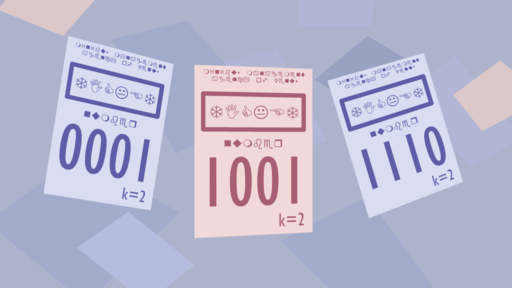| Codeforces Round 861 (Div. 2) |
|---|
| Finished |
This is the medium version of the problem. The only difference between the three versions is the constraints on $$$n$$$ and $$$k$$$. You can make hacks only if all versions of the problem are solved.
Maxim is a minibus driver on Venus.
To ride on Maxim's minibus, you need a ticket. Each ticket has a number consisting of $$$n$$$ digits. However, as we know, the residents of Venus use a numeral system with base $$$k$$$, rather than the decimal system. Therefore, the ticket number can be considered as a sequence of $$$n$$$ integers from $$$0$$$ to $$$k-1$$$, inclusive.
The residents of Venus consider a ticket to be lucky if there is a digit on it that is equal to the sum of the remaining digits, modulo $$$k$$$. For example, if $$$k=10$$$, then the ticket $$$7135$$$ is lucky because $$$7 + 1 + 5 \equiv 3 \pmod{10}$$$. On the other hand, the ticket $$$7136$$$ is not lucky because no digit is equal to the sum of the others modulo $$$10$$$.
Once, while on a trip, Maxim wondered: how many lucky tickets exist? At the same time, Maxim understands that this number can be very large, so he is interested only in the answer modulo some prime number $$$m$$$.

The only line of the input contains three integers $$$n$$$, $$$k$$$ and $$$m$$$ ($$$1 \le n \le 10^{18}$$$, $$$1 \le k \le 100$$$, $$$10^8 \le m \le 10^9 + 7$$$, $$$m$$$ is a prime number) — the number of digits on the ticket, the base of the numeral system on Venus, and the module for answer calculation.
Print one integer — the number of lucky tickets modulo $$$m$$$, i. e. the remainder after dividing the answer by $$$m$$$.
3 2 1000000007
4
3 4 1000000007
28
In the first example, there are only four lucky tickets: $$$000$$$, $$$011$$$, $$$101$$$, and $$$110$$$.
| Name |
|---|




